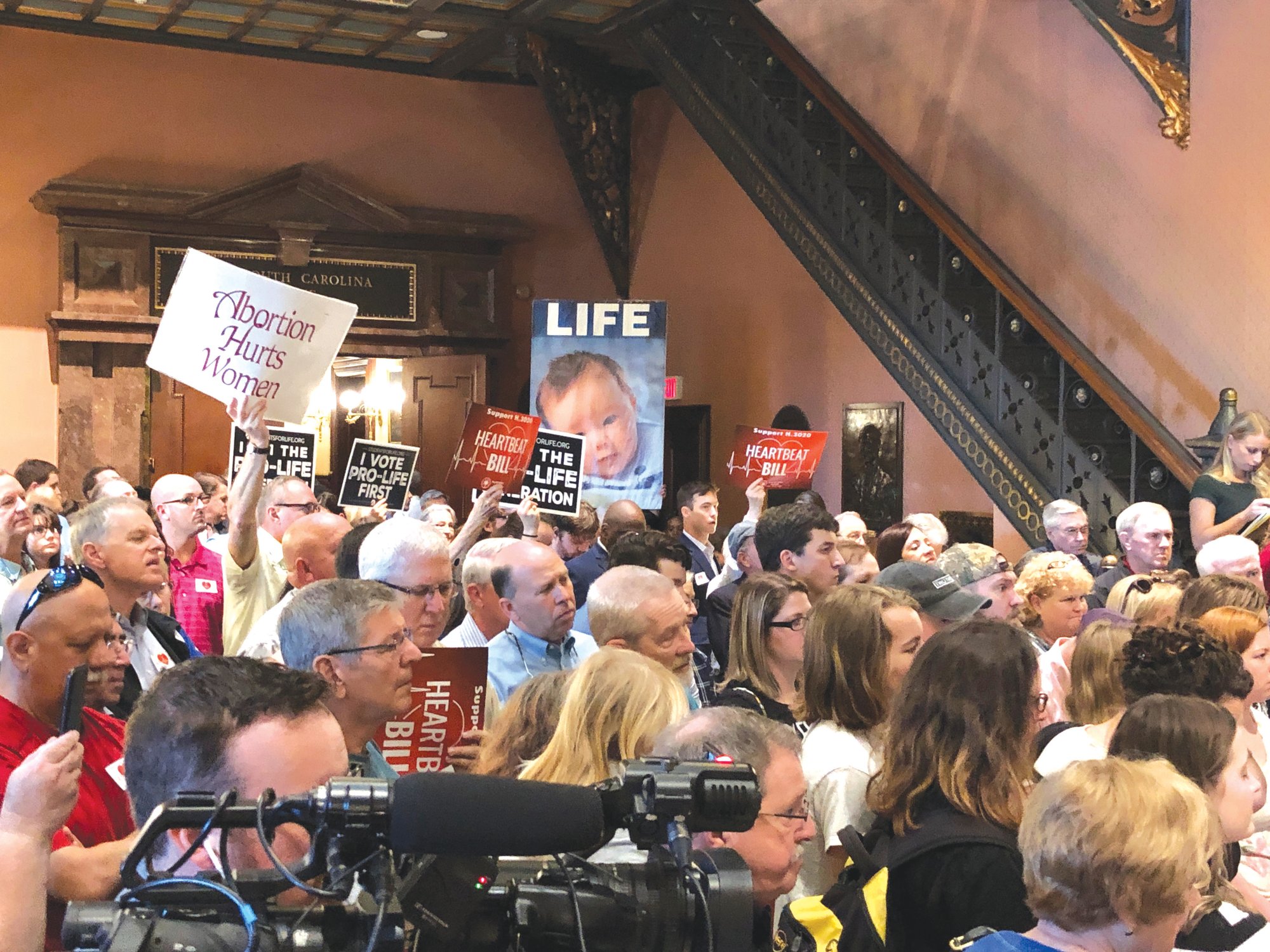After setback, state conservatives still push abortion bills
Supporters of a bill that would ban nearly all abortions in South Carolina fill the Statehouse lobby for a rally Jan. 15 in Columbia. The supporters of the heartbeat bill want Senators to vote on the proposal, while Senate leaders said they don't have the votes and it would bog down other debates.
The Associated Press
COLUMBIA - South Carolina lawmakers don't appear ready to debate a bill that would ban nearly all abortions this session, but abortion opponents are pushing some other related restrictions.
On a party-line vote Thursday, a Senate subcommittee approved a Republican-sponsored bill that would ban using the tissue from aborted fetuses in research, making it a felony to buy or sell the remains.
Supporters of the proposal couldn't cite a confirmed example of anyone selling tissue from an aborted fetus or conducting research on such tissue. But they said their goal is to prevent it from ever happening.
Bill sponsor Sen. Richard Cash compared it to Nazi death camps killing Jewish prisoners and then experimenting on their dead bodies.
"You're compounding the moral evil that took place in the first place," the Republican from Anderson County said.
Since being elected to the state Senate in 2017, Cash has made abortion his most important issue. He also is trying to get South Carolina to follow the lead of several other conservative states and pass a bill banning all abortions after a fetal heartbeat is detected - usually around six weeks after conception.
Leaders in South Carolina's majority Republican Senate have said they can't muster the two-thirds vote needed to clear a procedural hurdle to vote on the bill. Some Republican senators want to see if the other so-called heartbeat abortion bans survive court challenges.
"We should sit back and let those other states handle the expensive legal challenge to see whether the federal law will change regarding abortions. In its current form, I will not support this bill," Sen. Sandy Senn, a Republican from Charleston, wrote in a Facebook message to her constituents last week.
That apparent inaction isn't slowing down the fetal tissue research bill. Supporters point to a federal report in 2016 that linked a University of South Carolina lab to a University of Washington fetal tissue lab that's mentioned in a undercover video of Planned Parenthood representatives seeking to sell tissue.
USC officials have said the sole invoice linking the two labs was for $200 in 2009, and the document gave no information on what was being bought or sold.
The University of South Carolina also reiterated that researchers don't use human fetal tissue in their work.
Democrats on the subcommittee asked to delay a vote on the bill so they could get more information on whether fetal tissue is ever used in research.
"I'm anxious to hear from them so they can tell us what they are doing. Maybe they are saving lives," Democratic Sen. Kevin Johnson from Manning said.
The bill, which requires a prison sentence of up to five years for anyone convicted of buying or selling the tissue, passed anyway and is on its way to the Senate Medical Affairs Committee. If the Senate approves it, the more conservative House almost certainly would follow suit. South Carolina Gov. Henry McMaster has promised to sign any restrictions on abortion that get to his desk this year.
But like all abortion bills in the state right now, it faces resistance in the Senate, where Sen. Marlon Kimpson promised women and medical professionals will rally against it.
"This bill is going to have a problem on the Senate floor," the Democrat from Charleston said.
More Articles to Read

